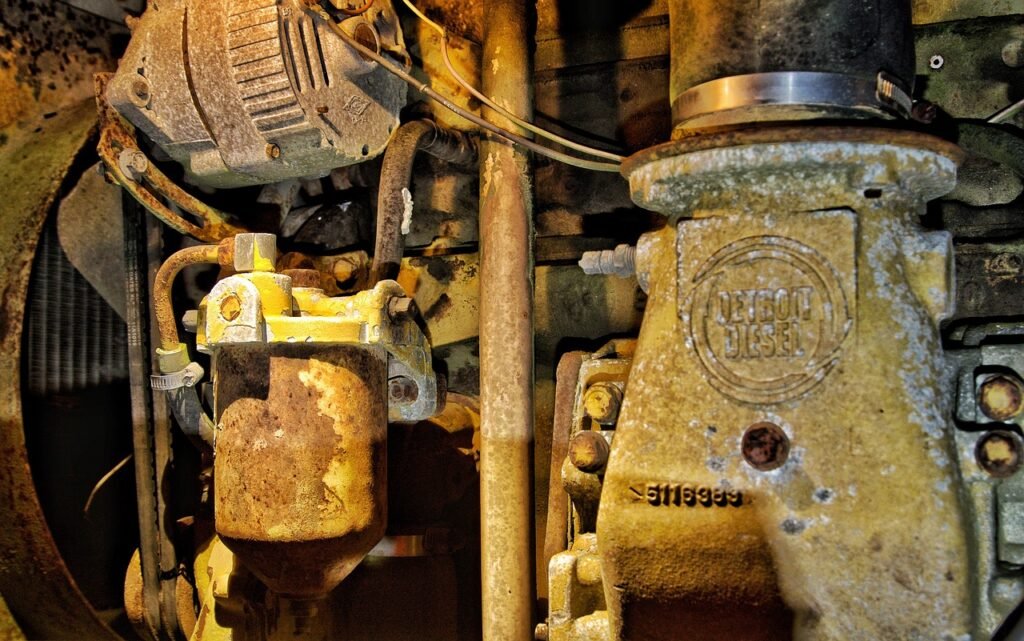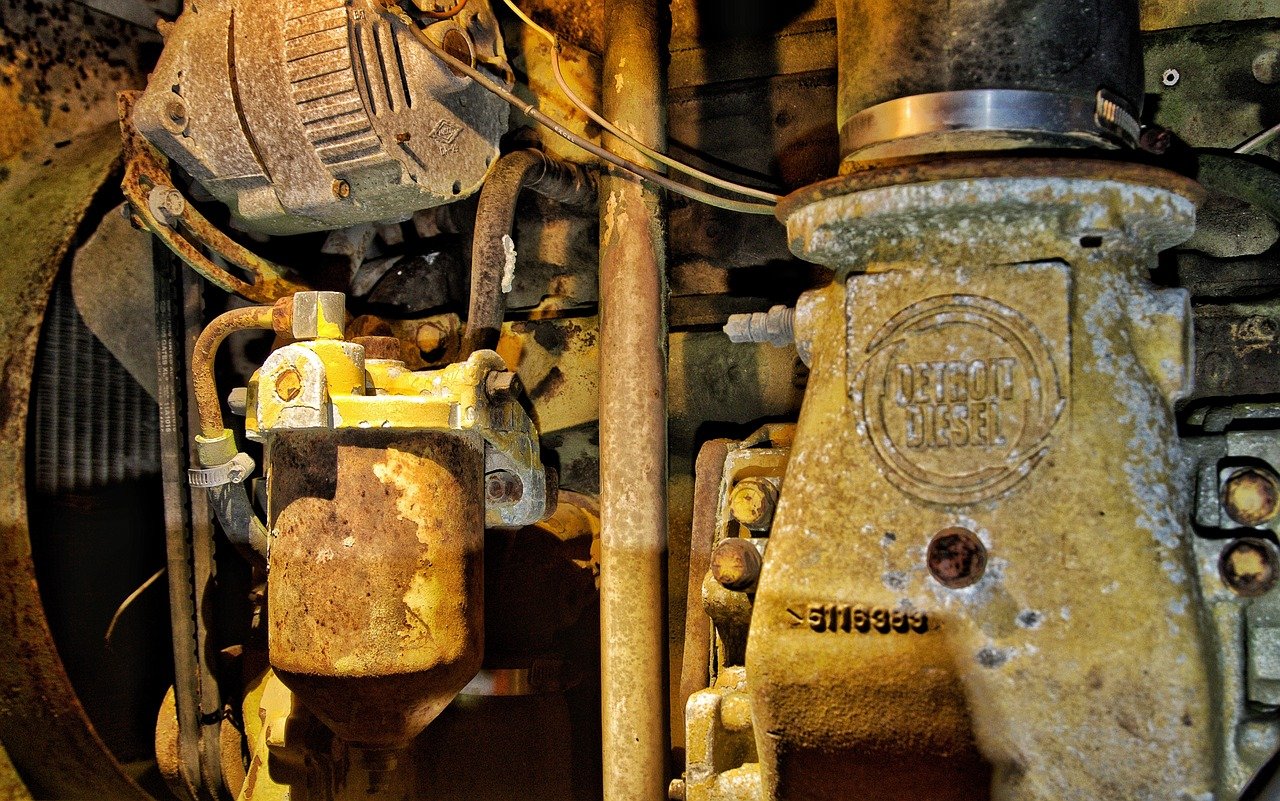Hey there! Are you looking to improve your vehicle’s fuel efficiency without sacrificing style? Look no further than upgrading to 18-inch rims! By choosing larger rims, you can optimize your vehicle’s overall performance, including better gas mileage. In this article, we will explore how upgrading to 18-inch rims can help maximize your fuel efficiency while still enhancing the look of your ride. Let’s dive in and learn more about the benefits of 18-inch rims for fuel efficiency! Hey there! Are you looking to improve your vehicle’s fuel efficiency while still cruising in style with your 18-inch rims? You’ve come to the right place! In this article, we will explore the relationship between fuel efficiency and 18-inch rims and provide you with tips on how to maximize your fuel economy without compromising on style. Let’s dive in!

This image is property of pixabay.com.
Understanding Fuel Efficiency
Fuel efficiency refers to the amount of fuel consumed by a vehicle in relation to the distance traveled. In simple terms, the more efficiently your vehicle uses fuel, the farther you can go on a full tank. Factors that can affect fuel efficiency include engine size, weight of the vehicle, driving habits, and of course, the type of rims on your vehicle.
The Impact of Rims on Fuel Efficiency
Believe it or not, the size and weight of your rims can have a significant impact on your vehicle’s fuel efficiency. Larger rims, such as 18-inch rims, are heavier than smaller rims, which can increase the overall weight of your vehicle. This added weight requires more energy (fuel) to overcome inertia and maintain speed, thus decreasing your fuel efficiency.
Choose Lightweight 18 Inch Rims
When selecting 18-inch rims for your vehicle, opt for lightweight materials such as aluminum or alloy. These materials are lighter than traditional steel rims, which can help reduce the overall weight of your vehicle and improve fuel efficiency. Additionally, lighter rims can also improve your vehicle’s handling and performance.
Maintaining Proper Tire Pressure
Proper tire pressure is crucial when it comes to fuel efficiency. Underinflated tires can increase rolling resistance, which in turn requires more energy (fuel) to keep your vehicle moving. By keeping your tires properly inflated to the manufacturer’s recommended levels, you can improve your fuel efficiency and extend the life of your tires.
Check Tire Pressure Regularly
Make it a habit to check your tire pressure regularly, at least once a month. You can find the recommended tire pressure for your vehicle in the owner’s manual or on a sticker located on the driver’s side doorjamb. Use a tire pressure gauge to ensure your tires are inflated to the correct PSI (pounds per square inch).
Benefits of Proper Tire Pressure
Maintaining proper tire pressure not only improves fuel efficiency but also enhances safety and handling. Properly inflated tires can provide better traction, reduce the risk of blowouts, and prolong the life of your tires. Plus, you’ll also enjoy a smoother ride and better overall driving experience.
Choosing the Right Tires
In addition to tire pressure, the type of tires you choose can also impact your vehicle’s fuel efficiency. When selecting tires for your 18-inch rims, consider factors such as tread pattern, tire width, and rolling resistance.
Low Rolling Resistance Tires
Low rolling resistance tires are designed to minimize friction between the tire and the road, which can improve fuel efficiency. These tires are typically made from special compounds and tread designs that reduce energy loss and resistance while driving.
Tire Tread Pattern
The tread pattern of a tire can also affect fuel efficiency. Tires with a more aggressive tread pattern, such as those designed for off-road use, can increase rolling resistance and decrease fuel efficiency. Opt for tires with a smoother tread pattern for better fuel economy.
Driving Habits for Improved Fuel Efficiency
Your driving habits play a significant role in your vehicle’s fuel efficiency. By adopting a few simple driving techniques, you can maximize your fuel economy and get the most out of your 18-inch rims.
Smooth Acceleration and Braking
Avoid aggressive acceleration and braking, as these habits can waste fuel and decrease your vehicle’s efficiency. Instead, accelerate gradually and brake gently to maximize fuel economy. By maintaining a consistent speed, you can reduce fuel consumption and wear on your brakes.
Maintain a Consistent Speed
Driving at a consistent speed can improve fuel efficiency, especially on the highway. Use cruise control when possible to help maintain a steady speed and reduce fluctuations in fuel consumption. Avoid unnecessary speeding or rapid acceleration, as these can significantly impact your fuel economy.
Aerodynamics and Fuel Efficiency
Aerodynamics also play a role in your vehicle’s fuel efficiency. The design of your vehicle, including the shape and angle of the body, can impact how air flows around and over your vehicle, affecting drag and fuel consumption.
Reduce Drag with Aerodynamic Accessories
Consider adding aerodynamic accessories to your vehicle, such as a front air dam or rear spoiler, to help reduce drag and improve fuel efficiency. These accessories are designed to streamline airflow and reduce resistance, which can enhance your vehicle’s overall performance.
Keep Windows Closed at High Speeds
Driving with the windows down at high speeds can increase drag and reduce fuel efficiency. To minimize drag, keep your windows closed when driving on the highway or at higher speeds. If you need ventilation, use your vehicle’s air conditioning system instead.
Regular Maintenance for Optimal Performance
Proper maintenance is key to maximizing fuel efficiency and prolonging the life of your vehicle. By keeping up with regular maintenance tasks, you can ensure that your vehicle is running smoothly and efficiently.
Schedule Routine Tune-Ups
Regular tune-ups are essential for maintaining your vehicle’s performance and fuel efficiency. Schedule routine maintenance appointments with a qualified mechanic to check your engine, brakes, and other critical components. A well-maintained vehicle will operate more efficiently and save you money on fuel costs in the long run.
Replace Air Filters and Spark Plugs
Dirty air filters and worn spark plugs can reduce fuel efficiency and hinder your vehicle’s performance. Replace air filters and spark plugs at the recommended intervals to ensure optimal engine function. Clean filters and spark plugs help your engine breathe easier and burn fuel more efficiently.
Conclusion
By following these tips and techniques, you can maximize your vehicle’s fuel efficiency while still enjoying the style and performance of your 18-inch rims. Remember to choose lightweight rims, maintain proper tire pressure, select fuel-efficient tires, drive with care, consider aerodynamics, and keep up with regular maintenance. With a few simple adjustments, you can improve your fuel economy and get the most out of your ride. Safe travels!
